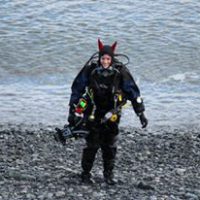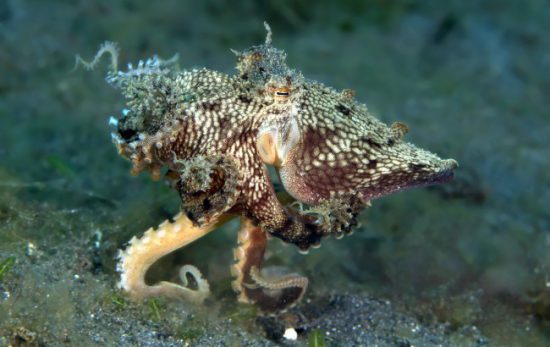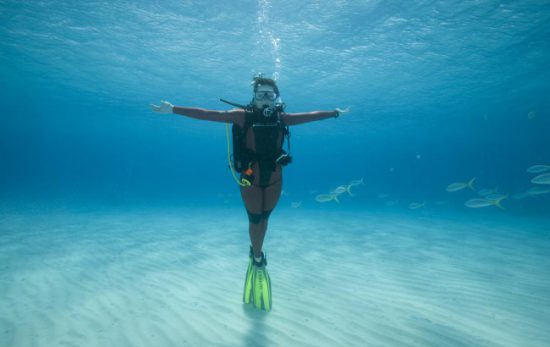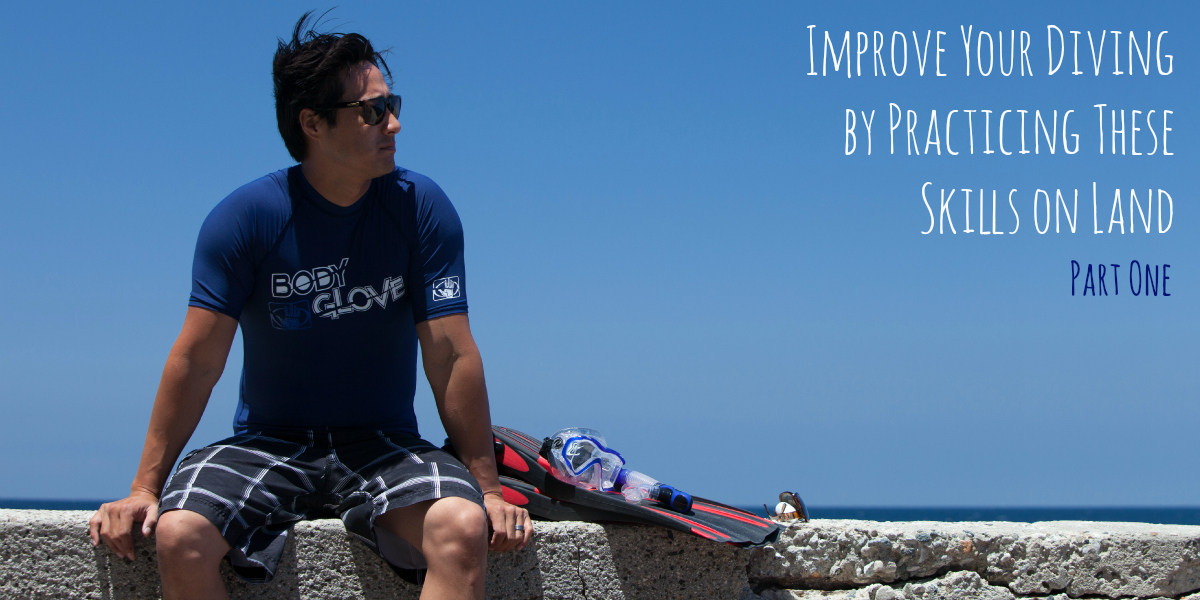
If you’re an avid diver or planning a scuba trip of a lifetime, you probably want to make the most of your time underwater. That’s why we’ve come up with this two-part blog post that outlines the things you can do between dive trips that will help to improve your diving.
Get to grips with compass navigation
Hone your navigation skills on solid ground, where you don’t have to worry about buoyancy. Find an open space, such as a park or beach, and have your underwater compass in hand.
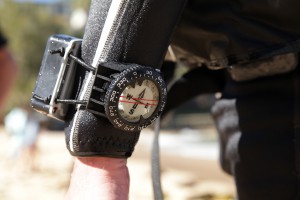 Start with a straight path and, facing your intended destination, set your compass bearing using the techniques learned in your underwater navigator course. Remember to keep your compass straight, and count your strides as an alternative to fin kicks. Once you’re comfortable with reciprocal lines, move on to more advanced routes such as a square or a point-to-point route your buddy sets out.
Start with a straight path and, facing your intended destination, set your compass bearing using the techniques learned in your underwater navigator course. Remember to keep your compass straight, and count your strides as an alternative to fin kicks. Once you’re comfortable with reciprocal lines, move on to more advanced routes such as a square or a point-to-point route your buddy sets out.
Next, try this a second time but with a towel over your head. You’ll need to see the compass in your hands but not the path in front of you, so make sure you’ve got a buddy by your side to keep you safe. Repeat the previous exercises using only your compass for direction. The key here is to trust your compass and not your own sense of direction!
Once you’ve mastered the ability to quickly and accurately follow compass bearings on land, your underwater navigation will feel much easier. In no time at all, you’ll find yourself prepared and confident to take the lead on your next dive.
Keep dive fit with exercises and yoga
A little time spent exercising every day not only improves your overall health, but it can also help your diving. Aerobic exercise such as running or spending time on the elliptical can help build your endurance, weight lifting can improve your strength, and stretches can increase your flexibility. Upper body and arm exercises often make it easier to carry dive gear to and from the beach, or climb back onto a boat. Targeting leg muscles can help to improve finning techniques and reduce the risk of muscle cramps.
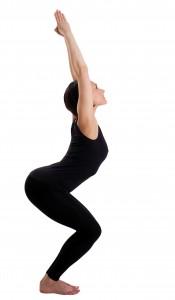 Yoga classes can help you master breathing techniques. Conscious breathing can help to slow down your heart rate and relax you, which in turn may calm nerves and reduce air consumption. Check out this post to learn about arm strengtheners and heart openers.
Yoga classes can help you master breathing techniques. Conscious breathing can help to slow down your heart rate and relax you, which in turn may calm nerves and reduce air consumption. Check out this post to learn about arm strengtheners and heart openers.
There are many ways to add exercise into your daily routine. Many gyms and local health clubs offer exercise and yoga classes; try slotting a session in before or after work, or play sports with friends during lunch. Get an exercise mat and squeeze in a quick session at home whenever you find a spare 10-15 minutes if signing up for the gym isn’t your style. Even small adjustments to your daily routine can also help: taking the stairs instead of the elevator or walking to the shop instead of driving. The key thing is to use your time on the surface to keep active and ensure you’re ‘dive fit’ before your next scuba trip.
Get snap happy to improve your underwater photography
It’s pretty fair to say that, if you’re not a good photographer topside, you won’t be a good photographer underwater either. The features on your camera are much easier to get used to without a mask, housing, or gloves adding to the task, and if you master the art of lighting and composition on surface subjects first, you’ll have greater success with your diving pictures as a result.
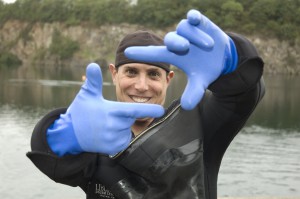 Since objects appear bigger and closer underwater than they actually are, underwater photographers need to be comfortable with getting close to their subjects. Go ahead. Get up there. But make sure you stay aware of your distance so you don’t get too close; once you’re underwater you should avoid distressing marine life just to get a ‘perfect shot’.
Since objects appear bigger and closer underwater than they actually are, underwater photographers need to be comfortable with getting close to their subjects. Go ahead. Get up there. But make sure you stay aware of your distance so you don’t get too close; once you’re underwater you should avoid distressing marine life just to get a ‘perfect shot’.
Search for reef-like environments on land, like a forest, and explore structures akin to wrecks to refine your lighting and composition techniques. Practice using different angles by getting under trees and pointing the lens up. Get your buddies to pose as models and play around with perspective and depth of field. The beauty of digital photography is that you can take endless photos and often get instant feedback, so make the most of the opportunity; keep a camera with you and get ‘snap happy’ everywhere you go. Most importantly, don’t be afraid to try new things and experiment!
When you’ve discovered what works well and honed your photography skills, aim to expand on these techniques as a digital underwater photographer, and you’ll be winning photo contests before you know it.
We’re at the end of the first half of this two-part post. Can you think of any other land-based skills that will improve your diving?
Read Part 2: Improve Your Diving By Practicing These Skills
